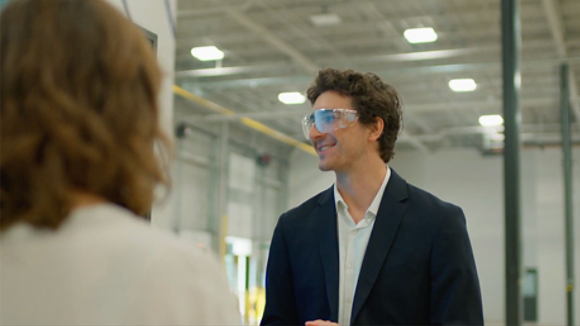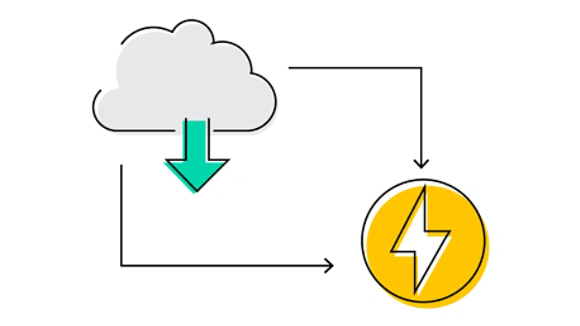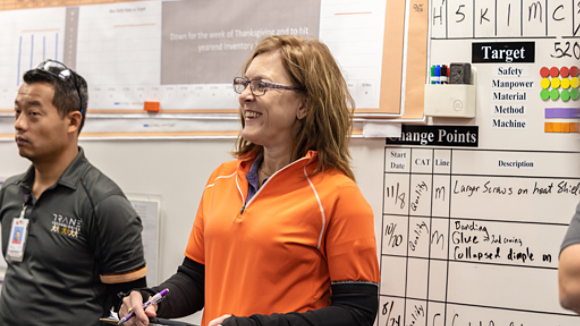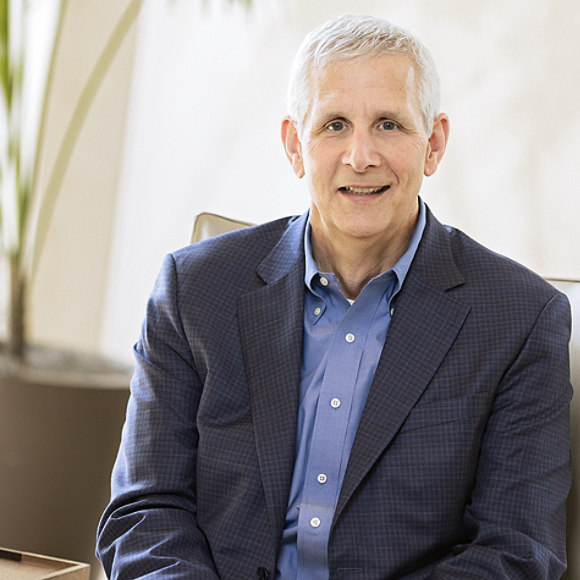May 23, 2025
Material Selection for Supply Chain Decarbonization
Trane Technologies uses circularity in materials to cut carbon emissions, improve supply chain resilience and achieve our Sustainability Commitments.
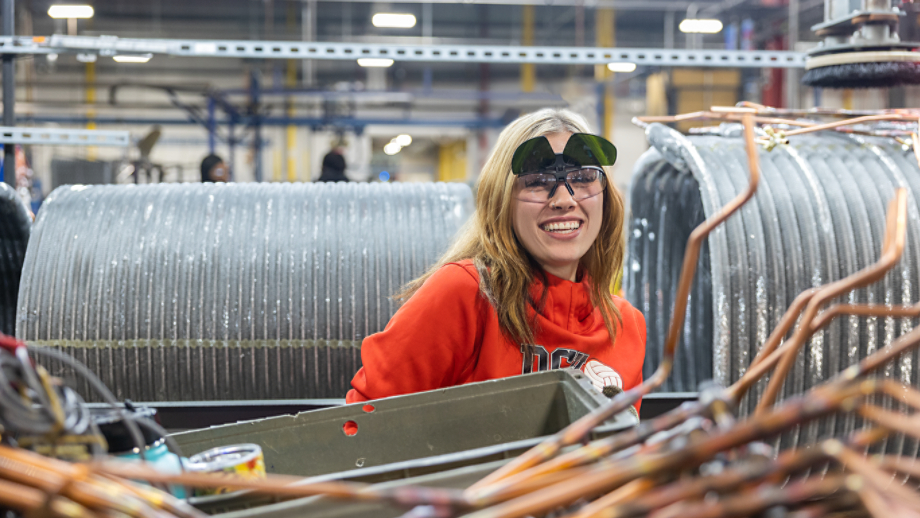
At Trane Technologies, our approach to circularity centers on a system that maintains the utility of products, materials and resources for as long as possible - while minimizing waste. As we work to decarbonize our business ecosystem and create value for our company and customers, we’re taking a proactive approach to embed circularity practices into our product development, supply chain and sourcing strategies.
Material selection is one of the core pillars of our circularity and sustainability work. By prioritizing materials with low environmental impact through our procurement and design decisions, we support both supply chain decarbonization and resilience.
Circularity in action: recycled aluminum alloy
An impactful example of our supply chain decarbonization and circularity work is our Trane Residential recycled aluminum alloy research and development project. Aluminum is a key material in our HVAC products but it is also a carbon-intensive element of our supply chain. Virgin aluminum alloy production consumes large amounts of energy and resources, accounting for 94% of the carbon emissions from the manufacturing process. We identified a leverage point to transform that challenge into an opportunity.
Our Materials & Chemistry Network of Excellence team launched a multi-year effort to replace the virgin aluminum in some of our residential HVAC heat exchanger components with high-recycled-content alternatives while maintaining our quality and performance standards. After failing to find a commercially available recycled alloy that met our stringent requirements, the Trane Technologies team collaborated with an external supplier to develop a manufacturing process for an alloy that contains up to 80% recycled content. The new alloy will save enough energy to power approximately 13,500 homes annually.
We’re focused on leadership in both sustainability and trade technology. So, when we find opportunities for sustainable supply chain innovation, we push ourselves and our collaborators beyond what we think we can achieve.
For another HVAC heat exchanger component application, Trane Technologies worked with a supplier to increase the alloy’s recycled content from approximately 20% to 84% without compromising material integrity or equipment performance. The team has also found other ways to decarbonize our aluminum supply chain, like working with industry leading aluminum suppliers in implementing sustainable aluminum production innovation.
This includes using electric manufacturing equipment to replace systems fueled by natural gas and reusing our aluminum scrap through closed-loop supply chains. Through these efforts, we are reducing carbon emissions throughout our value chain - from direct manufacturing emissions to indirect supplier emissions and the carbon footprint of our transport.
Circularity and environmental stewardship
These steps toward a decarbonized and resilient supply chain are just the beginning. Our team is expanding this circularity work into other areas, exploring opportunities with key materials like steel, copper and plastics.
Circularity practices like these are the tools that will help us achieve our 2030 Sustainability Commitments, including our goals to design systems for circularity and a 40% reduction in embodied carbon. Decarbonization solutions like our recycled aluminum alloy translate our big-picture sustainability goals into measurable, real-world impact.
Topic Tags

 English
English

